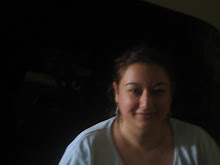We live in a tremendously globalized world. An economic crisis in one country spreads throughout the world in next to no time. A doctor in, say, Minneapolis may be reading out an MRI report written in Bombay. If you have a problem with your computer in London, you might end up talking to a call centre in Gurgaon, India, or Manila, Philippines. Etc.
And yet…
In this globalized world, people still feel so separate. Us vs. Them, a clash of civilizations, Muslims vs. “kafirs,” Hindus vs. Muslims, Shias vs. Sunnis, Sinhalas vs. Tamils, Maharashtrians vs. non-Maharashtrians. Wait, the list goes on. Senior executives in global countries and national politicians vs. the general public out there to be exploited for economic gain or political power.
In the age of globalization, the only widely shared values appear to be greed and self-interest. Both of which require a sense of separation from the rest of humanity.
Thursday, November 27, 2008
The Bombay Attacks
I woke up to the horrifying news of the Bombay (Mumbai) attacks this morning. At 6:30 in the morning, my husband, a journalist, was preparing to go to India to help with the media coverage.
I turned on the TV. By 8 a.m. (5:30 a.m. in India), BBC had told us about 16 attacks, 78 people killed, 200 wounded and hundreds held hostage.
Good morning world.
This is the world we live in now. The news could be coming out of Bombay, or London, or Karachi, or anywhere else in the world. It is always bad, each attack adding some new horror, some new “efficiency” to the killing. In the 7 years since 9/11, we have seen attacks in Britain, India, Pakistan, Saudi Arabia, Spain, Turkey… More that I can’t even remember at the moment.… One would think the world is now firmly divided between those who terrorise and those who are under threat.
Yet, in Bombay this morning, a young woman interviewed on BBC spoke of another threat to peace: political exploitation of the attacks to narrow party political ends, which could very possibly end in communal rioting. All this while the fire still raged at the Taj hotel, an old Bombay landmark, and while hundreds of Indians and foreigners were still being held hostage at 3 locations in Bombay.
I don’t know which is the biggest tragedy. The deadly terrorist attacks that are so much a part of our lives now, the feeling that our politicians will stop at nothing to grab power – or the lack of faith in ourselves as a society, the feeling that we can be easily manipulated to kill more innnocent people rather than fighting the terrorists.
I turned on the TV. By 8 a.m. (5:30 a.m. in India), BBC had told us about 16 attacks, 78 people killed, 200 wounded and hundreds held hostage.
Good morning world.
This is the world we live in now. The news could be coming out of Bombay, or London, or Karachi, or anywhere else in the world. It is always bad, each attack adding some new horror, some new “efficiency” to the killing. In the 7 years since 9/11, we have seen attacks in Britain, India, Pakistan, Saudi Arabia, Spain, Turkey… More that I can’t even remember at the moment.… One would think the world is now firmly divided between those who terrorise and those who are under threat.
Yet, in Bombay this morning, a young woman interviewed on BBC spoke of another threat to peace: political exploitation of the attacks to narrow party political ends, which could very possibly end in communal rioting. All this while the fire still raged at the Taj hotel, an old Bombay landmark, and while hundreds of Indians and foreigners were still being held hostage at 3 locations in Bombay.
I don’t know which is the biggest tragedy. The deadly terrorist attacks that are so much a part of our lives now, the feeling that our politicians will stop at nothing to grab power – or the lack of faith in ourselves as a society, the feeling that we can be easily manipulated to kill more innnocent people rather than fighting the terrorists.
Subscribe to:
Comments (Atom)











